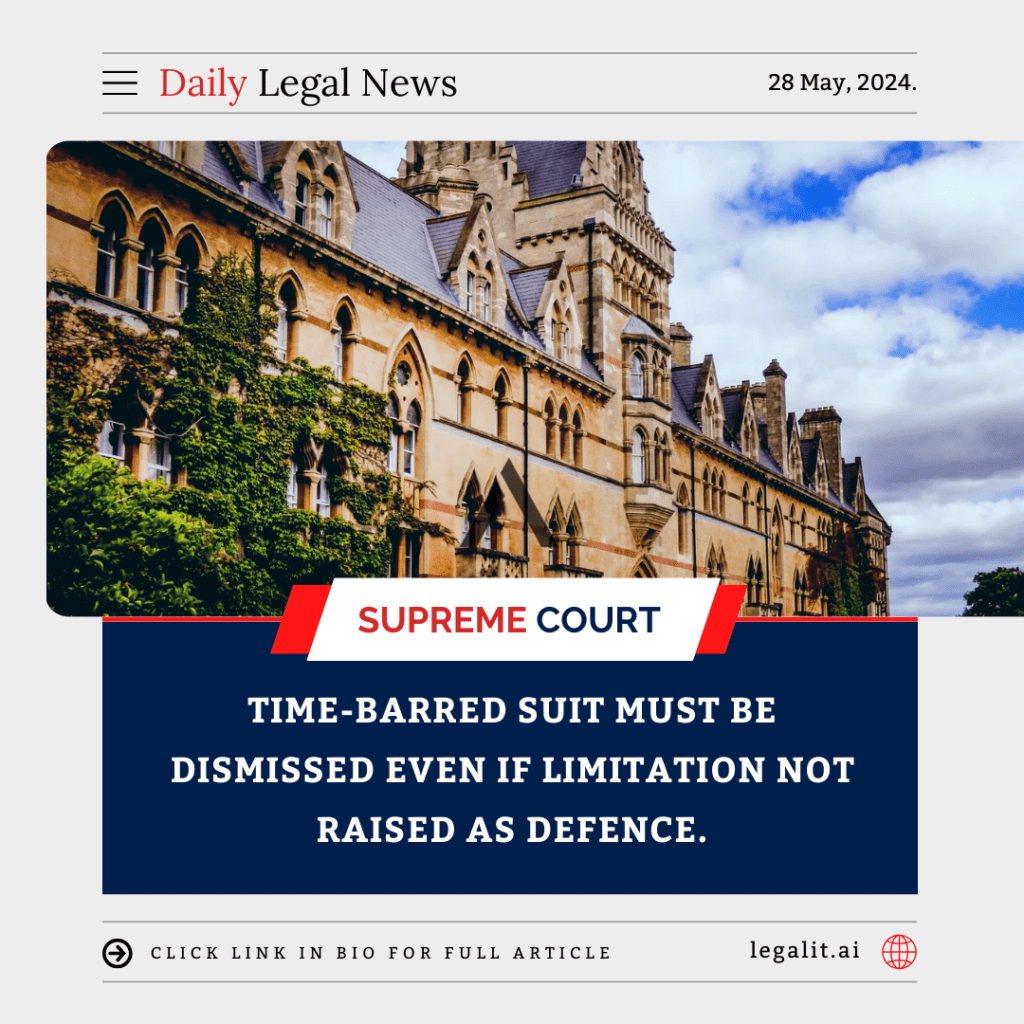
In a landmark decision, the Supreme Court of India ruled that a time-barred suit must be dismissed even if the plea of limitation is not raised as a defence by the opposing party. This ruling underscores the importance of adhering to the statutory timelines set forth in the Limitation Act, 1963.
Case Background
The case involved a civil suit where the plaintiff failed to file the suit within the prescribed limitation period. The defendant did not raise the plea of limitation as a defence during the trial. Despite this, the Supreme Court held that the court has the inherent duty to dismiss a suit that is evidently time-barred.
Key Observations
- Statutory Mandate: The court emphasized that under Section 3 of the Limitation Act, it is the duty of the court to consider the limitation period and dismiss any suit filed after the prescribed period, regardless of whether the limitation is pleaded as a defence or not (Legal Developments).
- Judicial Precedent: The ruling aligns with previous judgments where the Supreme Court has highlighted the necessity of maintaining judicial efficiency and avoiding the protraction of litigation through suits that do not adhere to statutory limits (Mondaq).
- Policy Considerations: The Supreme Court reiterated that the law of limitation is founded on public policy, aiming to prevent the resurrection of stale claims and ensure that justice is served within a reasonable timeframe. The principle of “Interest Reipublicae Ut Sit Finis Litium” (it is in the interest of the state that there be an end to litigation) was cited to emphasize the societal need to conclude legal disputes in a timely manner (Legal500).
Implications
This ruling reinforces the strict application of limitation laws in India. It serves as a crucial reminder for litigants and legal practitioners to be vigilant about statutory deadlines when initiating legal actions. The decision ensures that courts do not entertain suits that are inherently time-barred, thereby upholding the integrity of the legal process and preventing unnecessary judicial delays.
For more detailed information, you can refer to the full judgments and analyses on SCC Online, Legal Developments, and Mondaq.